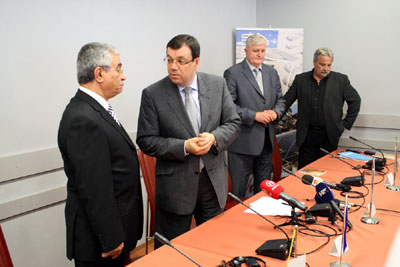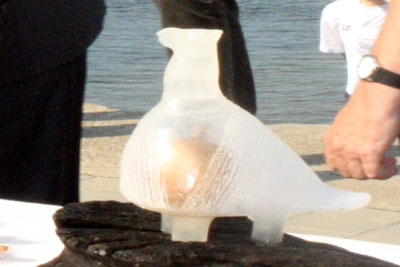


The president of the World Federation of Travel Journalists & Writers (FIJET), Tijani Hadad, on Monday presented its Golden Apple award to the eastern Croatian towns of Vukovar and Ilok for the research of the Vucedol culture and its promotion in Croatia and the world. Hadad said in Vukovar that this town, after Dubrovnik in 1996 and Split in 2002, was the third Croatian town to receive the tourism Oscar.

He said the Vucedol culture did not belong only to Vukovar and Croatia, but to the whole world, as this cultural heritage was universal and should be promoted around the world, adding that this was also FIJET's task.

The award ceremony in Vukovar was attended by about 30 members of FIJET's executive committee and presidency from around the world.

They were welcomed on behalf of Croatian Prime Minister Jadranka Kosor by Tourism Minister Damir Bajs, who said the Golden Apple would further promote Vukovar's and the tourism of the entire Croatia.
Speaking to the press, Bajs said Croatia expected 10.5 million foreign tourists this year, who were expected to generate some 57 million nights.

The Vucedol culture is an Indo-European culture that flourished between 3000 and 2200 BC (the Neolithic period), in the present-day Slavonia on the right bank of the Danube river, but possibly spreading throughout the Pannonian plain and western Balkans.

Sometimes also called the Vucedol civilization, it was contemporary with the Sumer period in Mesopotamia, the Early Dynastic period in Egypt and the early Troy. The archaeological site of Vucedol is situated several kilometers downstream from the Vukovar, on the right bank of the Danube. It is one of the most important sites of the Neolithic. Because of the importance of the findings in Vucedol, the whole phase of the Neolithic period was named after it - the Vucedol Culture. (Hina)
